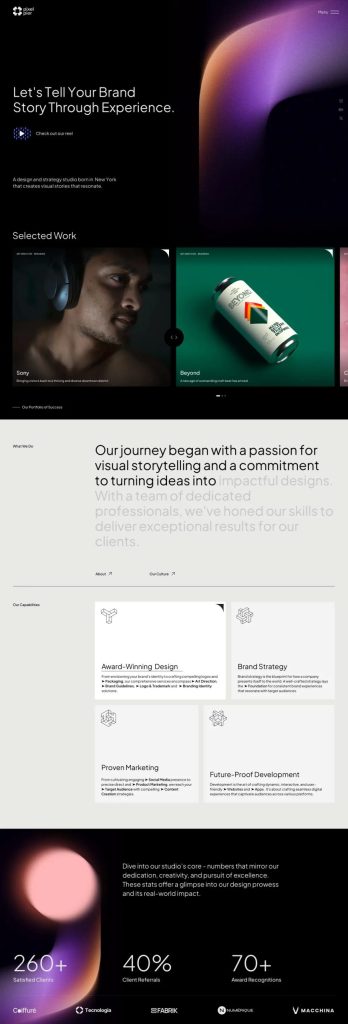Artificial Intelligence (AI) continues to redefine the landscape of industries globally, especially in the domain of data analytics and management. Recent advancements made by companies like Populytics and Sisense, combined with the emergence of ontology building practices, have demonstrated how AI can lead to smarter, more efficient data use and encourage novel approaches to data analytics.
Populytics, a rising star in the AI-driven data analytics sphere, has announced significant upgrades to its platform. The company specializes in leveraging AI algorithms to help organizations harness their data effectively, facilitating better strategic decision-making. Their latest enhancement features improved predictive analytics capabilities, allowing organizations to forecast trends with greater accuracy. By analyzing vast datasets, Populytics’s AI can identify patterns and anomalies that humans might overlook.
. This predictive capability has profound implications across various sectors, including healthcare, finance, and retail. For example, in healthcare, Populytics can assist hospitals in predicting patient inflow, enabling more efficient resource allocation. In finance, it can enhance risk management by predicting market changes. Retailers can optimize inventory management and customer engagement through data-driven insights. Overall, Populytics’s innovations illustrate the tremendous potential of AI in transforming how businesses approach data analytics.
Sisense, a leader in business intelligence, has also made headlines with its latest product updates that focus on integrating AI into its data analytics and visualization tools. The company’s platform allows users to combine various data sources to create comprehensive analysis with ease. Sisense has introduced features powered by natural language processing (NLP), enabling users to ask questions about their data in everyday language. This democratizes data analysis, allowing employees without technical expertise to extract valuable insights from large datasets.
. The key benefit of Sisense’s NLP feature lies in its accessibility. Organizations are increasingly recognizing that data-driven decision-making should not be limited to data scientists or analysts. By allowing business users to interact with data interfaces more intuitively, Sisense is promoting a culture of self-service analytics. This shift in approach helps companies to become more agile, improving the speed and accuracy of their decision-making processes.
Ontology building, on the other hand, is an emerging field that is particularly valuable in AI contexts. Ontologies provide a structured framework for organizing and defining the relationships between various concepts and categories within a domain. In AI, they facilitate better data interoperability, allowing different systems and algorithms to understand and interpret data consistently.
. A prime example of ontology building in action is its application in healthcare. By establishing a common ontology for medical terms and practices, different healthcare systems can share and analyze patient information more effectively. This can significantly enhance patient care by allowing for better diagnostic tools and treatment plans. Ontologies enable AI systems to work synergistically, amplifying their capabilities across diverse applications.
Recent developments indicate that organizations are increasingly investing in ontology building as a means to improve data governance and compliance. Many companies are realizing that the ability to define and manage knowledge structures is critical, given the overwhelming volume of data generated in most sectors today. By employing ontology-building practices, these organizations aim to streamline their data assets into comprehensible and actionable entities.
. Furthermore, ontology building aids in overcoming the challenges associated with data silos. Traditionally, organizations have struggled with integrating data coming from various departments, leading to inefficiencies. By utilizing well-defined ontologies, companies can facilitate smoother data integration and enhance collaborative efforts across teams.
The convergence of advancements by Populytics and Sisense with the principles of ontology building presents a notable trend: the ability to derive actionable insights from decentralized data pools. As organizations look to address the complex and multifaceted nature of their data, integrating AI-driven analytics with solid ontological frameworks will become increasingly crucial.
. Encouragingly, the future looks bright for organizations embracing these advancements. As AI tools become more potent, organizations can expect to realize a higher return on investment through efficiency gains and reduced operational costs. By fostering a culture of data literacy and self-service analytics enabled by platforms like Sisense and Populytics, companies are empowering their workforce to make informed decisions based on real-time insights.
Moreover, the evolution of AI, ontology building, and data analytics is sparking discussions about ethics and accountability in AI systems. The complexities surrounding the data being analyzed require robust frameworks to ensure that data privacy, security, and ethical considerations are front and center in any AI-driven model. As organizations become more reliant on AI insights, maintaining trust in the systems that underpin their decision-making processes will be paramount.
. Organizations like Populytics and Sisense are actively addressing these concerns by incorporating ethical guidelines and transparent processes within their platforms. By ensuring their AI tools are governed by ethical standards and can be audited, they enhance user trust and comply with regulatory requirements.
In conclusion, the combination of AI advancements from companies like Populytics and Sisense, alongside the rise of ontology building, is reshaping the field of data analytics. The enhanced capabilities of predictive analytics, natural language interfaces, and structured knowledge frameworks are enabling organizations to derive deeper insights from their data while enhancing collaborative efforts across departments. As the field continues to evolve, a focus on ethics and accountability will remain crucial to maintaining the integrity of AI-driven insights.
. The journey towards data-driven decision-making is perhaps only just beginning, but it holds the promise of transforming businesses and industries with knowledge and insight.
Sources:
1. Populytics Official Website
2. Sisense Blog and Product Updates
3. Journal of Data Science and Ontology Research





























